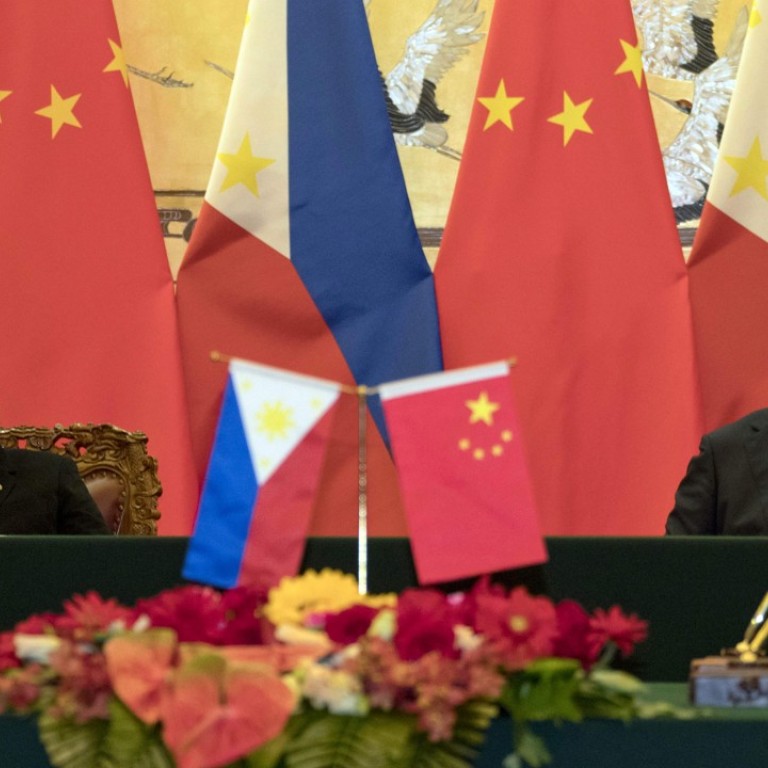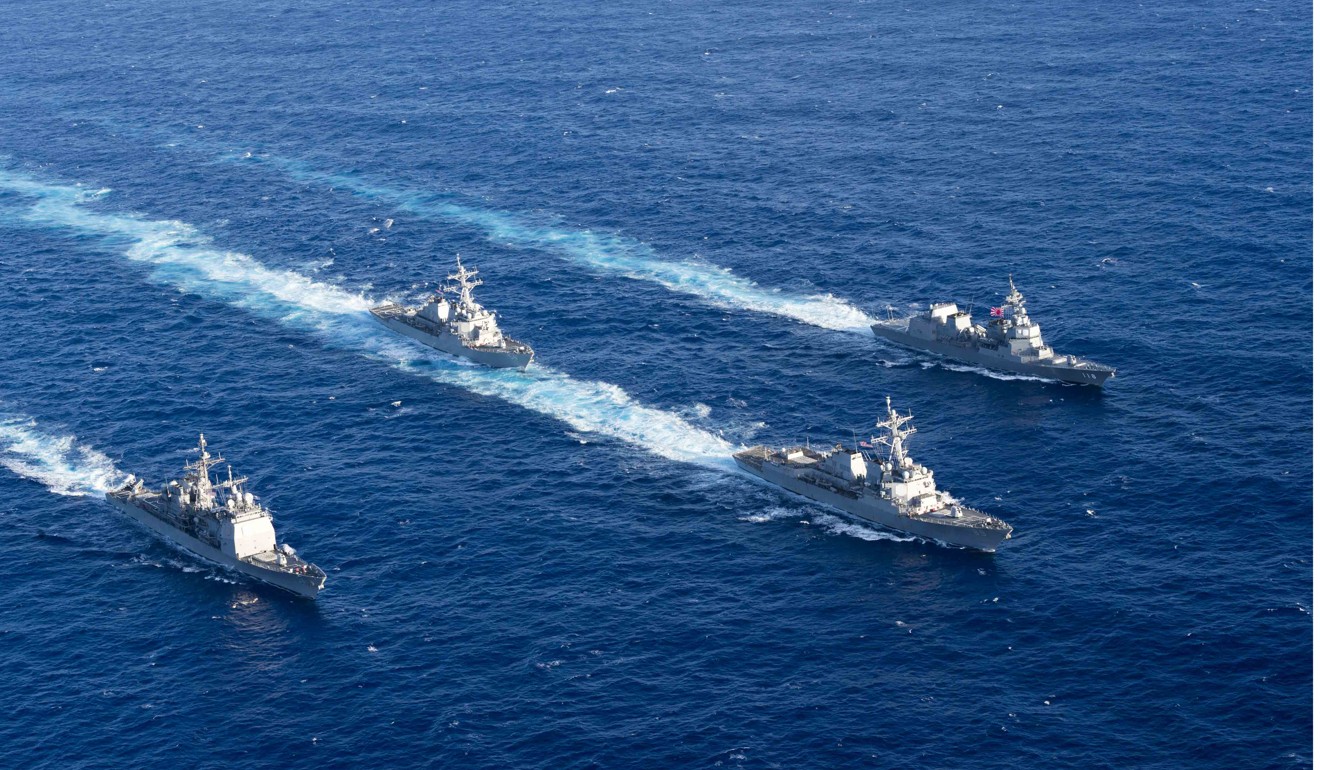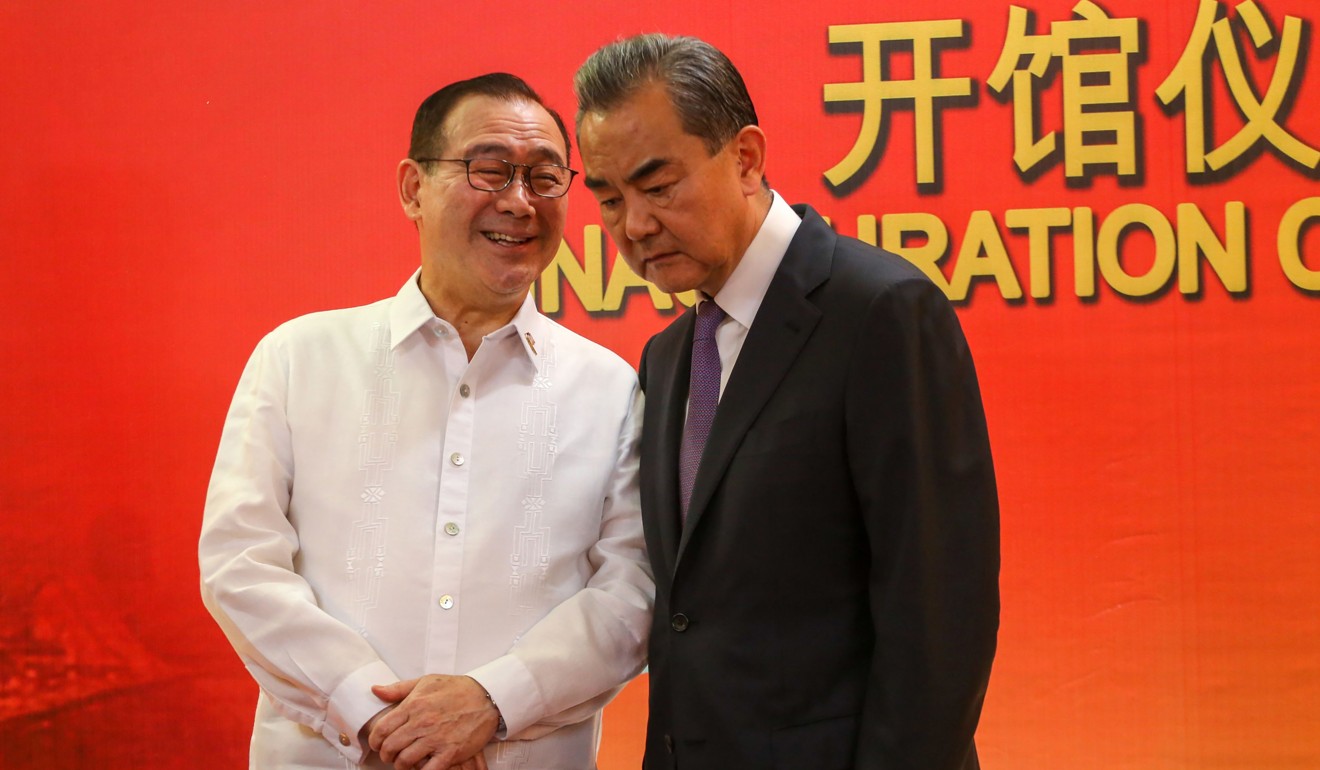
Will Xi Jinping’s trip to Manila mark the start of a golden age for China-Philippines ties?
- Philippine President Rodrigo Duterte has never missed a chance to express his love for the Chinese leadership, Richard Heydarian writes
- But his rhetoric stands in contrast to the more bellicose language from the Southeast Asian nation’s other senior officials
Chinese President Xi Jinping’s forthcoming visit to the Philippines, his first as leader to one of Southeast Asia’s most strategically vital nations, couldn’t have come at a more critical juncture.
Two issues are expected to dominate the trip, namely management of maritime disputes in the South China Sea and Beijing’s promise of large-scale infrastructure investments in the Philippines.
The outcome of the trip is likely to tip the scales of the Philippines’ internally contested foreign policy in a new direction. There is no room for complacency.
After more than two years of strategic flirtation, Manila is more than eager to reap the fruits of its rapprochement with Beijing.
On the surface, Xi’s visit marks the apotheosis of an ineluctable march towards a “golden age” in Philippine-China relations. And the geopolitical stakes are high.

For almost a century, the Philippines has served as a cornerstone of the American-led order in the region. Throughout the cold war, the Southeast Asian country hosted America’s biggest overseas bases in Clark and Subic, while providing vital logistical support during the Vietnam and Korean wars.
Since 2003, the Philippines has been considered as a major non-Nato ally to the United States, aiding the ongoing global war on terror, which has taken roots in Southeast Asia’s tropical jungles.
Now, China faces a historic opportunity to draw its southern neighbour out of the Western orbit of influence, as it seeks to construct a truly post-American order in Asia.
Philippines must strike a balance when China’s Xi Jinping comes to visit, analysts say
Weeks ahead of Xi’s visit, Chinese State Councillor and Foreign Minister Wang Yi made an unprecedented visit to Philippine President Rodrigo Duterte’s hometown of Davao where he inaugurated the new Chinese consulate.
Donning the Filipino barong (a traditional shirt), the Chinese diplomat waxed poetic during a dinner meeting with top Filipino officials, saying: “I know that you have invited me here tonight because you see me as your friend and as your partner.”
Then, with an almost sentimental note, he went on to say that, “President Duterte is the most respected and the most important friend for President Xi Jinping and the Chinese people”.

Throughout his first two years in office, Duterte has never missed a chance to express his “love” for the Chinese leadership. He has said as many positive things about Beijing’s support and goodwill as he has lashed out at the West for daring to question his record on human rights.
For Duterte, China is a crucial development partner that has to be embraced rather than criticised amid ongoing maritime spats in the South China Sea.
With the Philippines serving as the Asean-China country coordinator for the next two years, Duterte has made it clear that engagement, rather than confrontation, is his preferred course of action in the disputed waters.
China’s foreign minister heads to Philippines as sides near deal on South China Sea exploration
Characterising Asean-China relations as “excellent”, he has asked Beijing to “tell us what route shall we take and what kind of behaviour” we should adopt, dismissing the need for “friction” as China is already “in possession” of disputed land features.
He has even blamed the US as a potential obstacle to a peaceful management of maritime tensions, often sounding vexed over the Philippines’ defence alliance with Washington.
Yet, Duterte’s conciliatory rhetoric stands in contrast to the more bellicose language from other senior officials. Striking down domestic criticisms over Duterte’s apparently “defeatist” statements, Philippine Foreign Affairs Secretary Teodoro Locsin Jnr made it clear that Manila would “absolutely not” give up “an inch, not an iota of sovereignty” in the disputed waters.
Meanwhile, the Philippine military has quietly expanded defence cooperation with the US, adding 20 more joint exercises to its calendar next year.
Philippine Energy Secretary Alfonso Cusi has also raised doubts on earlier expectations of finalisation of a resource-sharing agreement in the South China Sea during Xi’s visit.
“No exploration deal that I know” of is on the table, the energy secretary said ahead of Xi’s visit. Instead, he expected it “may be” possible for the two leaders just to discuss it, and that he “would defer to the better judgment of the president if exploration deals will be taken up”.
The two sides are currently negotiating a joint exploration deal with China National Offshore Oil Company in the non-contested Calamian Islands in the South China Sea, which still requires legal amendments to push through. Any joint development agreement in areas of overlapping claims, so far, seems out of reach.
US carriers conduct warfare drills in Philippine Sea to ‘support free and open Indo-Pacific’
Meanwhile, the Philippines is also pressing China to actualise its earlier pledge of US$9 billion in official support for major infrastructure projects. So far, out of 10 big-ticket projects in the pipeline, only one, the Chico River Pump Irrigation Project worth US$62 million, has moved towards implementation.
Frustration seems to be building up in Manila, with critics accusing the Duterte administration of being taken for a ride by China.
In a press conference, Budget Secretary Benjamin Diokno hoped that Xi’s visit will “put pressure on the speed of implementation of all these projects”, emphasising the need for the Chinese “bureaucracy to speed up the process”.
And this is precisely why Xi’s visit is crucial. Both supporters and critics of Duterte will carefully watch what gifts and concessions the Chinese leader will bring along during his two-day visit.
Xi will have to reassure the Philippines that the promise of development help is real, and that the two countries are committed to finalising a mutually satisfactory modus vivendi in the South China Sea.
Otherwise, Duterte might come under growing domestic pressure to take a tougher and more critical stance towards China.

